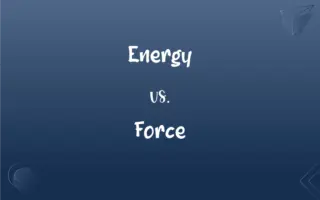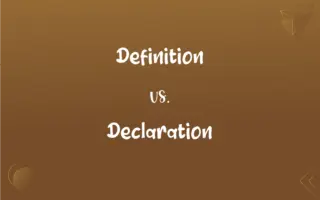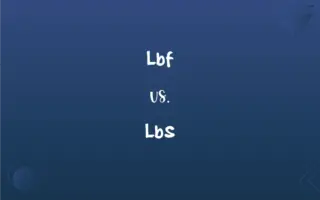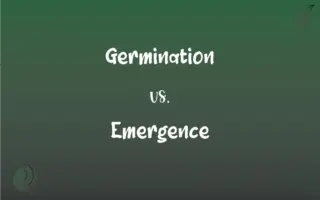Nuclide vs. Nucleus: What's the Difference?
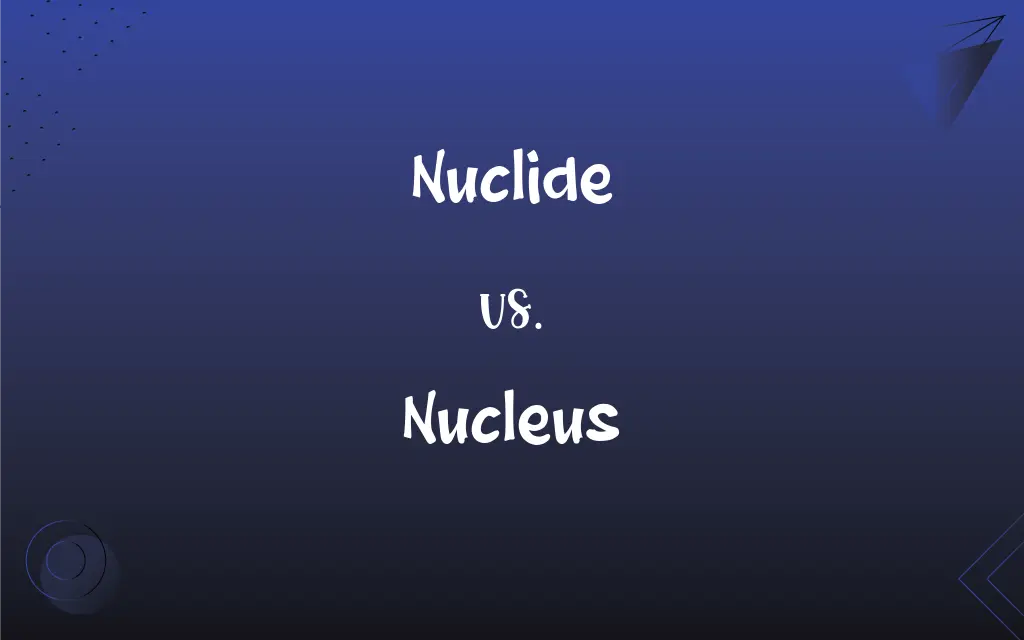
Nuclide and Nucleus Definitions
Nuclide
A type of atom specified by its atomic number, atomic mass, and energy state, such as carbon-14.
Nucleus
A central or essential part around which other parts are gathered or grouped; a core
The nucleus of a city.
Nuclide
(physics) An atomic nucleus specified by its atomic number and atomic mass.
Nucleus
Something regarded as a basis for future development and growth; a kernel
A few paintings that formed the nucleus of a great art collection.
Nucleus
(Biology) A membrane-bound organelle within a eukaryotic cell that contains most of the cell's genetic material. DNA transcription takes place in the nucleus.
ADVERTISEMENT
Nucleus
(Anatomy) A group of specialized nerve cells or a localized mass of gray matter in the brain or spinal cord.
Nucleus
(Physics) The positively charged central region of an atom, composed of protons and neutrons, about which negatively charged electrons orbit. Extremely small and dense, the nucleus contains almost all of the mass of an atom.
Nucleus
(Chemistry) A group of atoms bound in a structure, such as a benzene ring, that is resistant to alteration in chemical reactions.
Nucleus
The central, often brightest part of the head of a comet.
Nucleus
The solid part of a comet, composed of ice and smaller amounts of dust and rock.
ADVERTISEMENT
Nucleus
The central, often brightest part of a galaxy.
Nucleus
(Meteorology) A particle on which water vapor molecules accumulate in free air to form a droplet or ice crystal.
Nucleus
(Linguistics) The part of a syllable having the greatest sonority. In the word middlemost (mĭdl-mōst′) the nuclei of the three syllables are (ĭ), (l), and (ō); in the Czech word krk ("neck"), the nucleus is (r).
Nucleus
The core, central part of something, around which other elements are assembled.
Nucleus
An initial part or version that will receive additions.
This collection will form the nucleus of a new library.
Nucleus
The massive, positively charged central part of an atom, made up of protons and neutrons. Category:en:Nuclear physics
Nucleus
(cytology) A large membrane-enclosed organelle found in eukaryotic cells which contains genetic material.
Nucleus
(neuroanatomy) A ganglion, cluster of many neuronal bodies where synapsing occurs.
Nucleus
The central part of a syllable, most commonly a vowel.
Nucleus
A kernel; hence, a central mass or point about which matter is gathered, or to which accretion is made; the central or material portion; - used both literally and figuratively.
It must contain within itself a nucleus of truth.
Nucleus
The body or the head of a comet.
Nucleus
An incipient ovule of soft cellular tissue.
Nucleus
A body, usually spheroidal, in a eukaryotic cell, distinguished from the surrounding protoplasm by a difference in refrangibility and in behavior towards chemical reagents, which contains the chromosomal genetic material, including the chromosomal DNA. It is more or less protoplasmic, and consists of a clear fluid (achromatin) through which extends a network of fibers (chromatin) in which may be suspended a second rounded body, the nucleolus (see Nucleoplasm). See Cell division, under Division.
Nucleus
The tip, or earliest part, of a univalve or bivalve shell.
Nucleus
A part of the cell containing DNA and RNA and responsible for growth and reproduction
Nucleus
The positively charged dense center of an atom
Nucleus
A small group of indispensable persons or things;
Five periodicals make up the core of their publishing program
Nucleus
(astronomy) the center of the head of a comet; consists of small solid particles of ice and frozen gas that vaporizes on approaching the sun to form the coma and tail
Nucleus
Any histologically identifiable mass of neural cell bodies in the brain or spinal cord










